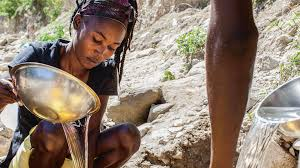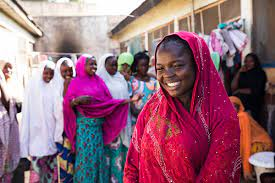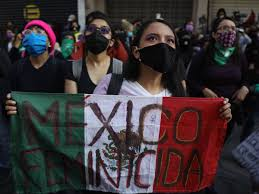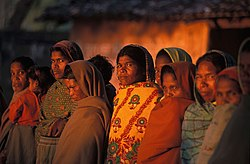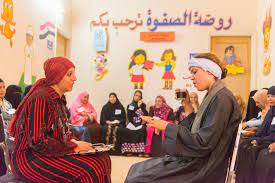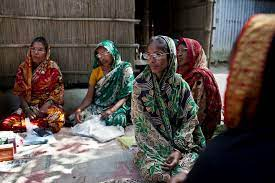- The IRC identified Haiti, Honduras and Venezuela as the countries most at risk of experiencing deteriorating humanitarian crises in 2022 in Latin America and the Caribbean;
- In 2022 Emergency Watchlist, IRC reveals a “System Failure”: the international system meant to prevent and address humanitarian crises is not only failing, but directly fueling them, as well as record displacement and humanitarian need;
- Conflict, climate change and COVID-19 are among the main risks for the three countries, with potential impacts at a regional scale;
- IRC calls for a Total System Upgrade to prioritize both the urgent work to provide humanitarian relief as well as confront the drivers of the crises.
Media Contacts
Everardo Esquivel
International Rescue Committee
+52 81 8201 2045
Kellie Ryan
International Rescue Committee
+254 758 710 198
IRC Global Communications
+1 646 761 0307
New York, NY, January 19, 2022 — Haiti, Honduras and Venezuela are the three countries in Latin America and the Caribbean deemed most at risk of humanitarian deterioration over the year ahead, according to the 2022 Emergency Watchlist, a report by the International Rescue Committee (IRC).
IRC analysis has identified how the global humanitarian system, which is designed to protect civilians, prevent conflict, hold abusers to account, and guarantee that aid reaches those in need, is failing at all levels. The 2022 Emergency Watchlist reveals that this system failure is even fueling the crises, driving displacement, and increasing the needs.
In Latin America and the Caribbean, the system failure has particularly harmed Haiti, Honduras and Venezuela, which have experienced deteriorating living conditions throughout the years and today are home to almost 15 million people in need of aid. During 2022, the countries are expected to face humanitarian risks spanning from ongoing conflict and violence, to higher vulnerability to the effects of natural disasters and climate change, the consequences of COVID-19, and more.
Meghan Lopez, Regional Vice President for Latin America at the International Rescue Committee, said:
“Last year, we saw how Haitians, Hondurans and Venezuelans endured terrible challenges that forced hundreds of thousands to leave their homes and try to find safety within their own countries first. Unfortunately, as we have historically seen, people usually encounter similar situations to those they escaped, and are left with no choice but to continue their journeys and look for alternatives elsewhere.
“The amount of displaced people is a result of emergencies that have been escalating and that, if the international community fails to address, will undoubtedly shape the region this year. They will contribute to the expansion of humanitarian crises not only within, but beyond their borders; we have already seen this happen at the Darien Gap, across the migration corridors in Mexico, and in host countries, like Colombia, Ecuador and Peru. As Latin America increasingly becomes a route for those in need of protection (even from very distant places, like Afghanistan), and needs continue to rise, more international funding and cooperation will be key to respond across the arc of the crisis.”
Among other risks, the IRC identified three that the Latin American countries have in common:
Ongoing conflict and growing violence
- In Haiti, killings and kidnappings are on the rise, with 40% of the capital city controlled by criminal groups. Gangs also have control over ports and transport routes, blocking the flow of basic goods and hampering humanitarian access to deliver aid.
- Honduras, considered the most dangerous country in the region, saw homicide rates of 38 per 100,000 people in 2020. As levels of violence increase, both on the streets and in the home, including gender-based violence, thousands will continue to be forced to decide between staying in the country or fleeing, mostly to the North.
- In Venezuela, clashes between national forces and Colombian criminal groups, as well as between armed non-state groups increased in 2021 and will likely continue to displace people in 2022.
Vulnerability to natural disasters and climate change
- Infrastructure and services in Haiti have been decimated in the last decade as a consequence of the earthquakes in 2010 and August 2021, as well as Tropical Storm Grace. With civil society responders and the overstretched health system already strained by insecurity; COVID-19 and resource shortages further taxed by the crippled infrastructure; and the government’s dysfunction, the needs will grow in the face of additional natural disasters.
- Previous disasters, including hurricanes Eta and Iota, as well as the exposure to prolonged droughts, wildfires and other climate shocks, will likely contribute to food insecurity and economic decline in Honduras.
COVID-19 and its effects
- Economic contraction–derived from the decline in remittances due to COVID-related economic slowdowns around the world and high inflation rates–will continue in Haiti, where the poverty rate was estimated to be as high as 60% in 2020. With low harvests expected, 4.6 million people might face high levels of hunger.
- Poor health infrastructure and limited access to sanitation services have contributed to the spread of COVID-19 in Honduras, affecting particularly rural and economically marginalized communities. With barely 39% of the population fully vaccinated as of December 2021, the health risks associated with the pandemic will remain a concern.
- Although Venezuela has made more progress vaccinating its population than many of the countries on the 2022 Emergency Watchlist, it is expected that COVID-19 will continue to impact the country in 2022, especially the economy. Projections estimate another 3% contraction, along with extreme levels of inflation and unemployment.
The IRC calls for a “Total System Upgrade” to address the consequences of the system failures seen in Watchlist countries. This will require a dual response, with more effective humanitarian action that tackles the symptoms and better serves the victims, while also tackling the roots of the problem.
Read the full report, with more insights from each country and the IRC’s recommendations for addressing the System Failure here.
